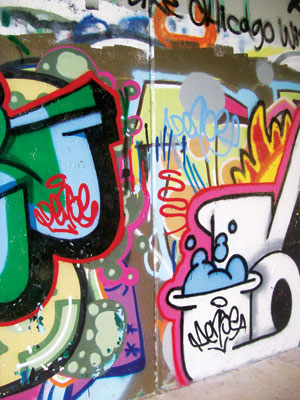All Nonfiction
- Bullying
- Books
- Academic
- Author Interviews
- Celebrity interviews
- College Articles
- College Essays
- Educator of the Year
- Heroes
- Interviews
- Memoir
- Personal Experience
- Sports
- Travel & Culture
All Opinions
- Bullying
- Current Events / Politics
- Discrimination
- Drugs / Alcohol / Smoking
- Entertainment / Celebrities
- Environment
- Love / Relationships
- Movies / Music / TV
- Pop Culture / Trends
- School / College
- Social Issues / Civics
- Spirituality / Religion
- Sports / Hobbies
All Hot Topics
- Bullying
- Community Service
- Environment
- Health
- Letters to the Editor
- Pride & Prejudice
- What Matters
- Back
Summer Guide
- Program Links
- Program Reviews
- Back
College Guide
- College Links
- College Reviews
- College Essays
- College Articles
- Back
Is Communism Corrupt?
A cold cement stone structure served as a menacing and thick barrier between a city divided, Berlin, Germany. It was heavily guarded from passage by German communist military. This barrier, which brought sadness, heartache, and economical problems was infamously known as the Berlin Wall.
Berlin was split in half. Economy in East Berlin was bad. People dreaded the place. Many people were crossing over to the West side to have better life. The communist Soviets decided to clamp down on the people leaving them. Drastic measures were taken. Then it finally happened.
????It was on August 13, 1961, when communist military trucks drove through the streets of Berlin in the middle of the night, rolling out barbed wire, constructing a wall that would change Europe. From barbed wire to cement, it was a wall. "The East German economy was crumbling,” said John Wilkes.
????People still escaped, but some were shot down trying to escape. One man was shot and wounded, then left to die by the East Berliners. Years of resistance came, people rioted, United State’s presidents visited, but nothing seemed to penetrate Soviet views. People were getting angry. Something had to give. It was the wall.
????On November 9, 1989, the Berliners finally got their wishes. The wall was opened and partying ensued. Happiness reigned. It was bliss in Berlin.
????Although the wall did have an effect, my opinion is that the wall was not needed. But it happened. It serves as a symbol to the world of what communism can do, and is not a fair way of government to the people. Communism is corrupt. Thankfully, not many countries in Europe still rule with communist government. The subject and memories of the Berlin Wall stand as a powerful symbol, showing the corruptness of communism.

Similar Articles
JOIN THE DISCUSSION
This article has 0 comments.
